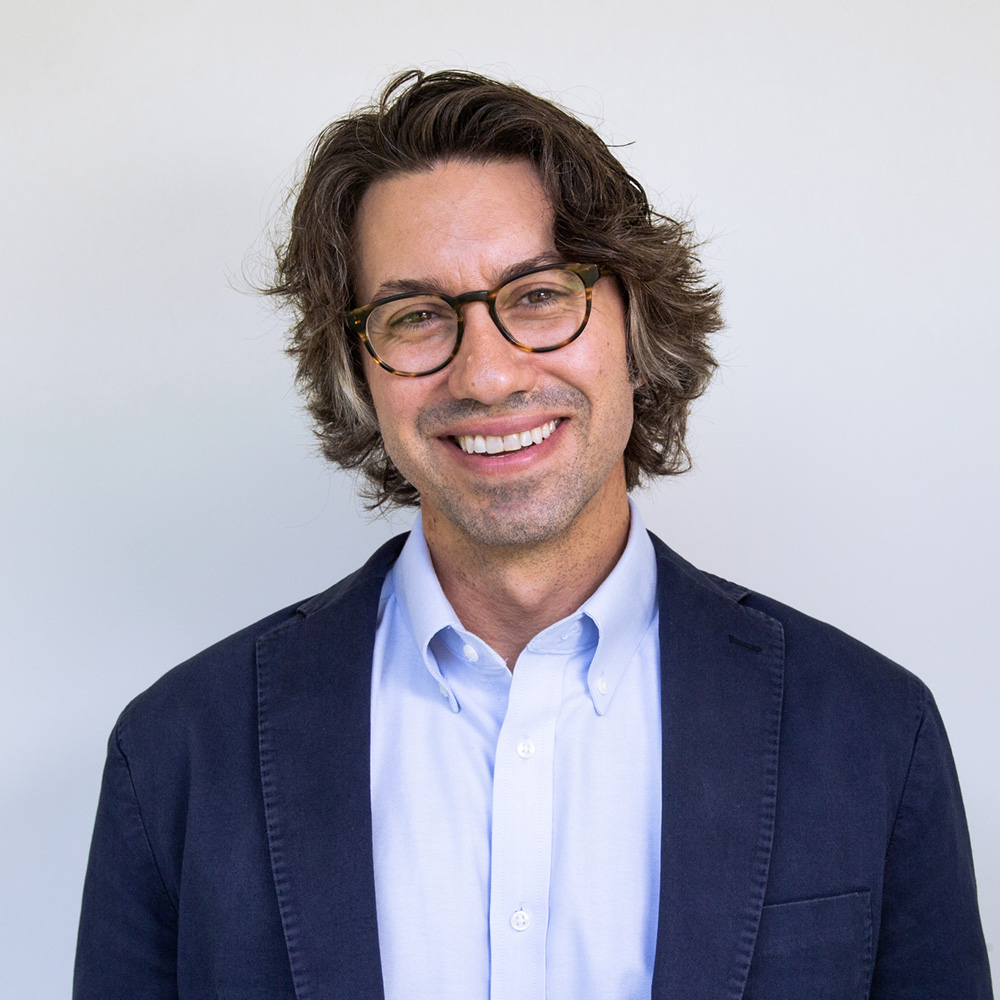Considering how often we say we care about children in the U.S., one might assume we’d be able to point to stellar statistics on our children’s well-being as proof of that value. Unfortunately, we can’t do that. According to UNICEF data from a 2020 pre-pandemic study, the U.S. ranks 36th out of 38 wealthy countries in child health outcomes. Pick an outcome—infant mortality, poverty, hunger, child care—by almost any measure, we’re lagging behind other rich nations.
A yawning gap exists between what we say about children and what we do for them. The reasons for this disconnect are complicated, but much of it has to do with how children exist—or simply don’t exist—in the imagination of the public and policymakers. Philosopher René Descartes’s first principle, “I think, therefore I am,” pretty much says it all. How we think about our world gives us our reality. As a nation, the way we think about children—or don’t consider them at all—is failing our kids.
Fortunately, as stacks of behavioral and brain research have shown, we aren’t stuck with the attitudes and values we’ve inherited: As both individuals and a society, we can change our minds. We can change the lens, reframe the issues and give childhood—particularly early childhood, in our case—the value it deserves.

A study published in the February 2023 issue of the journal Children set out to explore how the early childhood sector could increase its prominence in the thinking of both the public and policymakers. The three-year project took place in Australia, but according to lead author Dr. Nathaniel Kendall-Taylor, based on other research conducted in the U.S. in partnership with the nonprofit Leading for Kids, the societies are sufficiently similar that the findings offer worthwhile insights for advocacy messaging in the U.S., with some notable differences.
The project, Story to Change Culture on Early Childhood in Australia, built on efforts led by Harvard University’s Center on the Developing Child and Canada’s Alberta Family Wellness Initiative to use the science of framing to identify the cultural models that shape how members of the Australian public think—their mindsets—about early childhood.
An expert in psychological anthropology and communications science, Kendall-Taylor heads the Washington, D.C.-based FrameWorks Institute, a think tank that applies social science methods to study how people understand social issues and help organizations craft practical ways of communicating solutions with their audiences. To “make sense” of social problems, people rely on mental shortcuts—some of which are more helpful than others. If advocates communicate in a way that cues the unhelpful ways of thinking, their ideas are much more likely to be dismissed or to evoke equally unhelpful responses.
For example, a frame that early care and education (ECE) workers are underpaid professionals caring for our nation’s most precious resource is significantly more powerful than the frame that they are long-suffering, low-wage heroes.
The Australian study interviewed early childhood experts in fields including psychology, education, public health and neuroscience (referred to in the research as “the sector”) about their thoughts on the most important early childhood concepts for members of the public to understand, and key policies they saw as most important for supporting young children and their families.
Researchers then asked questions of members of the public across a broad spectrum of society, all designed to elicit stories and ideas about early childhood. After analyzing their responses, the scientists developed a set of frames to test with the public, ultimately interviewing more than 7,000 participants to develop a set of evidence-based framing recommendations to address the gaps in understanding that showed up between those in the early childhood sector and members of the public.
One of the greatest takeaways of this and other studies on framing is for communicators to recognize that they are not the audience for their messages, as evidenced in the gaps in understanding the study observed. To break through to policymakers and the public, advocates must work to understand the other’s frames and reality. Otherwise, any attempts at telling the story of early childhood will either bounce off or fall on unhearing ears.
An example of this might be seen in the fact that several of the Australian findings emphasized the value of early childhood resources and policies to support children’s health and well-being.
“One of the more interesting findings from the Australian research is that when we tested different issue frames, such as ‘Is early childhood learning about joy?’ we found that by far health was the most effective issue frame.
“I suspect that health doesn’t have the same collectivizing effect in the U.S. as it does in Australia because there’s a more socialized medical system and much more of an understanding of the social drivers of health—of public responsibility for health.”
So, trying to communicate the early childhood story in the U.S. through the frame of supporting children’s health is unlikely to move the needle as far. Here, the value that typically has worked best is focusing on future progress and social prosperity—the idea that we need to invest in kids now for the collective good going forward. A caveat, however, is that the early childhood field has focused more on later—the idea that you invest X amount now and get a return on your investment later. Recently there’s been some backlash against this view because it seems to devalue children for who they are now and send the message that they only matter for what they’ll be contributing when they’re wage-earning adults.
One of the study’s recommendations was for the early childhood narrative to highlight the idea that supporting early childhood development leads to good outcomes for children, families and society now, as well as setting the stage for good outcomes in the future.
The idea of who’s responsible for a child’s development in the early years had some overlap between the two countries, with the public in both believing it’s primarily the adults in children’s lives who are responsible for how they turn out rather than seeing the systemic factors that shape development. In general, Kendall-Taylor says, people assume that individual choices rather than social systems shape their lives and outcomes and therefore, the government shouldn’t overstep. Americans take it a step farther.
“One thing that’s amazing about research that we’ve done in the U.S. is the degree to which Americans will hold kids—even very young kids—responsible for their own outcomes,” Kendall-Taylor says.
Given that degree of rugged individualism, it may seem contradictory that fairness—at least fairness among places—is an effective frame in both countries.
“That’s a big thing that came out of the Australia project. Pointing out that stress and adversity are unevenly distributed across the population, and fairness between places is the value that worked. It’s sometimes called the zip code argument—the idea that where a kid is born shouldn’t determine their life chances generalizes to the U.S. as well. The call to action needs to be to make people feel efficacious about being able to do something about it and cement a sense of collective responsibility for doing so.”
In considering using the fairness frame to tell the early childhood story, Kendall-Taylor cautions advocates to consider emphasizing that every child should receive the resources that meet their needs. The idea of giving “everything to everybody” was viewed as wildly unrealistic and untenable. And only giving to those with the most needs reinforced the idea that “those people” were taking resources they didn’t deserve and set up the zero-sum mentality of “more for them means less for me.” But saying, “We’re interested in making sure everyone’s doing well and that means supporting different kids in different ways,” is, he says, “the magic combination.”
For those who have been in the early childhood space for even a little while, discouragement and frustration are often just around the corner. Kendall-Taylor has been studying framing and early childhood for more than 20 years and he offers something that might help the advocates themselves do a bit of reframing.
“I don’t think people (in the U.S.) see kids as a public responsibility yet,” he says. “But there is a sense that the decisions we make as a society affect kids in a way that wasn’t the case 20 years ago. If you look at 25 years ago, when budgets got tight, it was always the kids’ issues that got cut. The younger the kids, the more their issues got cut.
“Now, that just isn’t the case. If you’re a candidate or a decision maker, part of what you’re doing has to be acknowledging the importance of early childhood.”
RESOURCES
- FrameWorks Institute A rich resource offering a library of all the institute’s research and recommendations on a wide variety of issues, from aging to climate change, equity to education, health to housing and, of course, child and adolescent development. The Framing 101 section offers a great resource to any communicator wanting to be more effective at what they do.
- Story to Change Culture on Early Childhood in Australia This study offers a deep dive into social issue communication. Its methods can be used to understand how people think about early childhood development and what might move them and build sufficient will to act and demand solutions.
- Leading for Kids A nonprofit dedicated to improving children’s health and well-being by creating a movement to change how we talk about kids, how we can invest wisely and productively in their futures and how decisionmakers can reflect children’s voices and protect their rights.

K.C. Compton
K.C. Compton worked as a reporter, editor and columnist for newspapers throughout the Rocky Mountain region for 20 years before moving to the Kansas City area as an editor for Mother Earth News. She has been in Seattle since 2016, enjoying life as a freelance and contract writer and editor.



